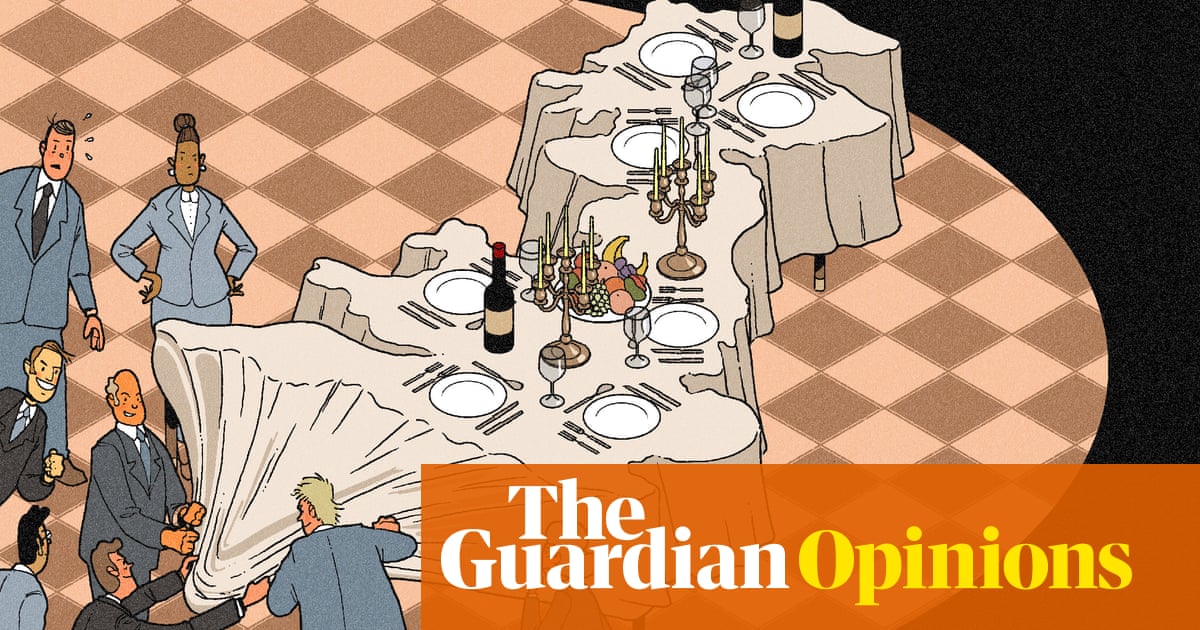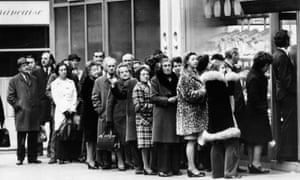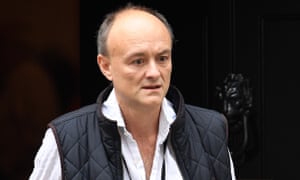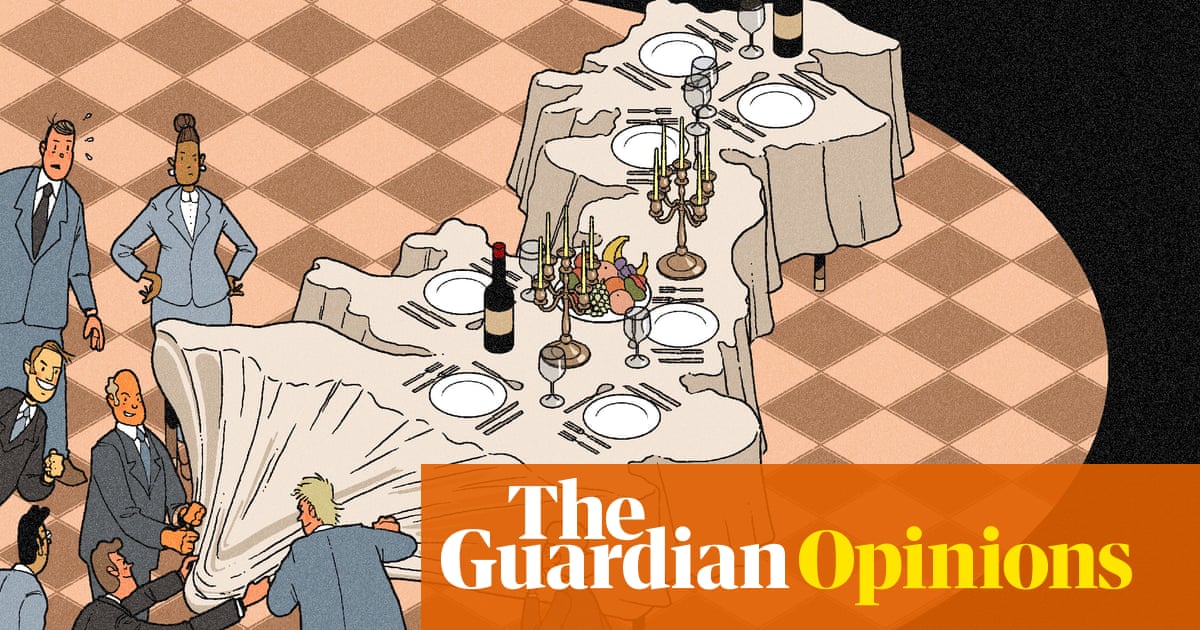There are revolutionaries on the political right who crave this kind of upheaval. But their opportunism can end in disaster, says historian Andy Beckett

Genuine national crises, where everyday life is disrupted and the status quo buckles or crumbles, dont come along often in a usually stable, sometimes boring country like Britain. Over the last half century, there have arguably been less than half a dozen: the three-day week in 1974, the winter of discontent of 1978-9, the riots and recession of 1981, the financial crisis of 2007-8, and the current, accelerating meltdown constitutional, economic, and cultural around Brexit.
Such episodes are a nightmare for many people, but others yearn for them. Once, these catastrophists were mostly found on the revolutionary left. Now they increasingly come from the right.
During the long, often politically placid interlude between Thatcherisms triumph in the 1980s and its undoing by the financial crisis 25 years later, rightwing British newspapers sometimes seemed to be almost willing a national emergency into being. Awful but only temporarily disruptive events, such as the outbreak of foot and mouth disease in 2001, were often reported in apocalyptic terms. The Daily Telegraph described this as one of the worst social and financial catastrophes to befall peacetime Britain. With Tony Blairs Labour government in office, that assessment by the voice of the Tory shires had a whiff of wishful thinking about it.
For the British state, national crises are both a curse and an opportunity. Many civil servants want to be consistent administrators or incremental social reformers, not crisis managers, and Whitehalls routines are disturbed by emergencies. During the three-day week, power cuts meant that staff at the Department of the Environment then an ambitious new ministry housed in a glassy, hard-to-heat complex with bare floors had to be issued with small squares of carpet to place under their desks to keep their feet warm. More recently, at the Department for Exiting the European Union, so many extra staff have been hastily recruited, a civil servant told me over the summer, that there are not enough toilets. The Brexit metaphor almost writes itself.
Yet national emergencies also enable the state to increase its power. In the early 1970s, Edward Heaths Conservative government secretly established the civil contingencies unit (CCU) a typically sly Whitehall euphemism to maintain essential amenities and supplies across the country whenever the next big crisis occurred. The CCU combined national and local politicians, civil servants, the military and the police into something approaching a shadow government. Sometimes it seemed to have its own agenda, beyond party politics. During the winter of discontent, when strikes overwhelmed Jim Callaghans Labour administration, the CCUs chairman, an urbane civil servant called Clive Rose, told the transport minister, Bill Rodgers, that its job was not to keep the government in office but to see the country isnt destabilised. A version of the CCU still exists, now known as the civil contingencies secretariat. If a chaotic no-deal Brexit comes, it is not hard to imagine it giving Boris Johnsons administration similar warnings.

Nor is it hard to imagine his government ignoring them. Much is currently being said about how the confrontations and disorder around Brexit fit into a clever plan devised by Dominic Cummings. That may even be the case as much as one adviser can influence events. Yet Johnsons enormously confident, faintly otherworldly strategist could also reflect on the damage done by even fleeting national crises to previous British governments even to governments much more competent and popular than his one.
In 2000, when protests against rising fuel duties blockaded British oil refineries, and petrol stations across the country began to run out of fuel within days, the Blair government seemed curiously paralysed, Blair admits in his memoirs. Images of queues of cars, petrol forecourts crowded or closed, and general chaos proved irresistible to the media. In less than a month, a long-standing Labours poll lead over the Tories of about 20% turned into a deficit of almost 10%. Modern voters quickly abandon governments that fail to protect the flow of daily essentials.
Blair swiftly ended the crisis, partly by backing down to the protesters and freezing fuel duties. But the government was sufficiently spooked by the whole experience to pass the Civil Contingencies Act in 2004, an update and expansion of Heaths emergency powers. The act defined a national crisis in strikingly broad terms, as, among other things, an event or situation which threatens serious damage to human welfare the security of the United Kingdom [or] disruption of [its] supply of money, food, water, energy or fuel.
Over recent months, both Theresa Mays and Johnsons governments have discussed how this Blair-era act could be used to respond to Brexit unrest. In January, the Sunday Times reported that Whitehall was considering curfews, bans on travel, confiscation of property and even the introduction of martial law.
Johnson has already announced his intention to shut parliament in the run-up to Brexit, without any apparent qualms or collapse in Conservative support. The prospect of Britains first openly authoritarian Tory election campaign one that would be anti-parliamentary, while promising to end the Brexit crisis by any means necessary, as Cummings likes to put it is no longer just a possibility being considered by paranoid leftists.

But would such a campaign actually work? In 1974, amid the blackouts of the three-day week and a disruptive strike by the then mighty National Union of Mineworkers, Heath called a snap election in order to transform his previously conciliatory premiership into a dominant one. Do you want a strong government? he asked in a party political broadcast. The dictatorial hint was brief the rest of the broadcast pushed more consensual messages but even that was too strong for voters. They chose a compromising Labour government led by Harold Wilson instead.
In the 70s, as today, more and more Britons began to believe that the country was in a state of general crisis so deep that conventional government couldnt fix it. And yet it took until the end of the decade, in 1979, for that mood to become strong and widespread enough to carry an authoritarian leader, Margaret Thatcher, into 10 Downing Street. But we live in faster, less politically squeamish times, when populists far to the right of Thatcher are, to many voters and journalists, thrilling political celebrities rather than the sort of people Britain used to fight world wars against. So this time the Conservative party has made its journey from party of consensus to party of crisis in months rather than years.
Anyone who believes that Johnson is the strongman the country needs, however, may wish to recall the last time he was faced with social chaos as a political leader. In the summer of 2011, while he was mayor of London, the capital suffered its worst riots for 30 years. Taken by surprise, Johnson was on holiday in a remote part of Canada. For three days, while the disorder spread across London and other cities, he refused to return. In a BBC interview justifying his absence, he referred to the man whose killing by police sparked the riots, Mark Duggan, as Michael Duggan. More of that Johnson carelessness and over-confidence during the fraught years after Brexit could leave Britain with a crisis that makes its previous ones look minor.
Andy Beckett is a feature writer for the Guardian
Read more: https://www.theguardian.com/commentisfree/2019/sep/05/boris-johnson-national-crisis-brexit


Recent Comments